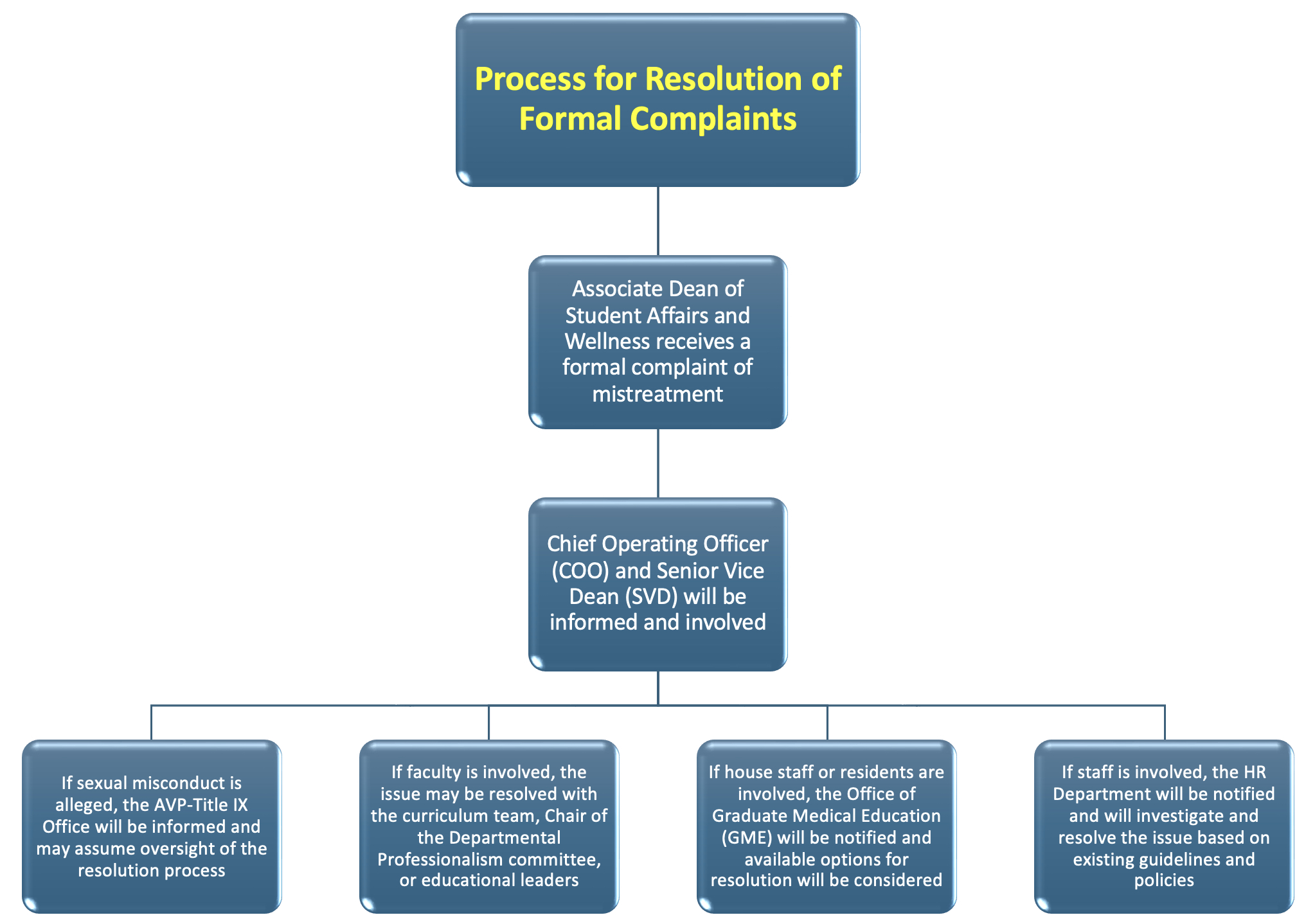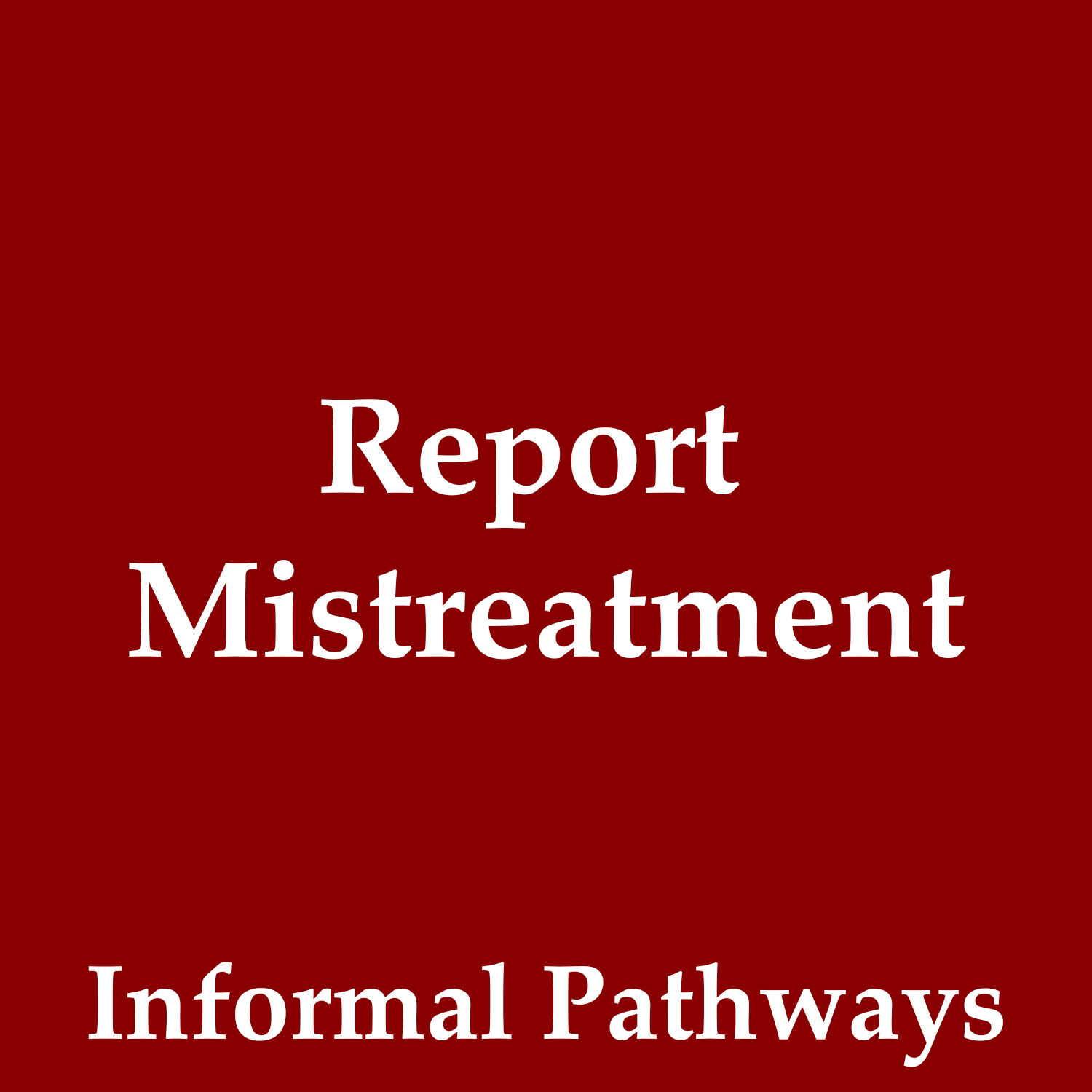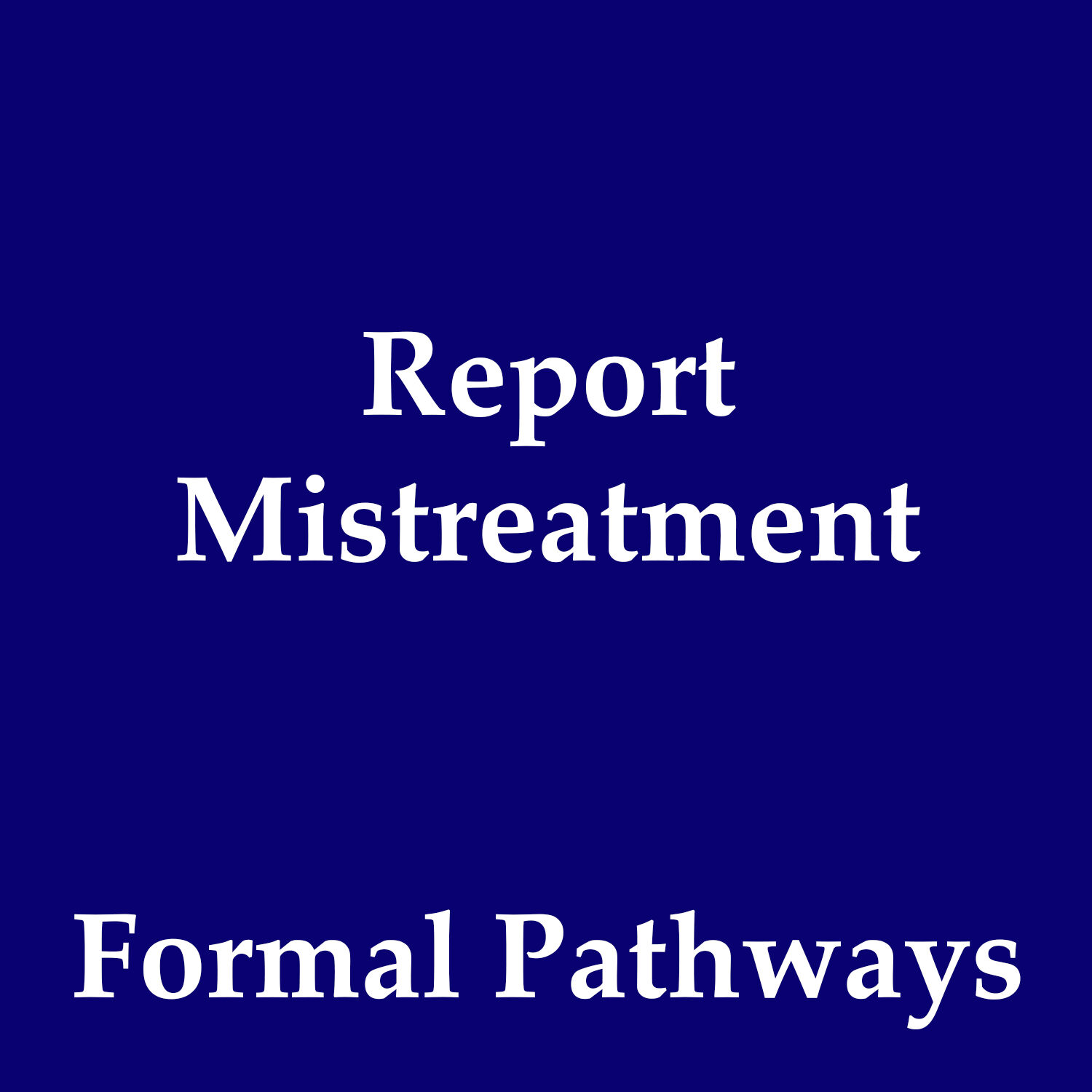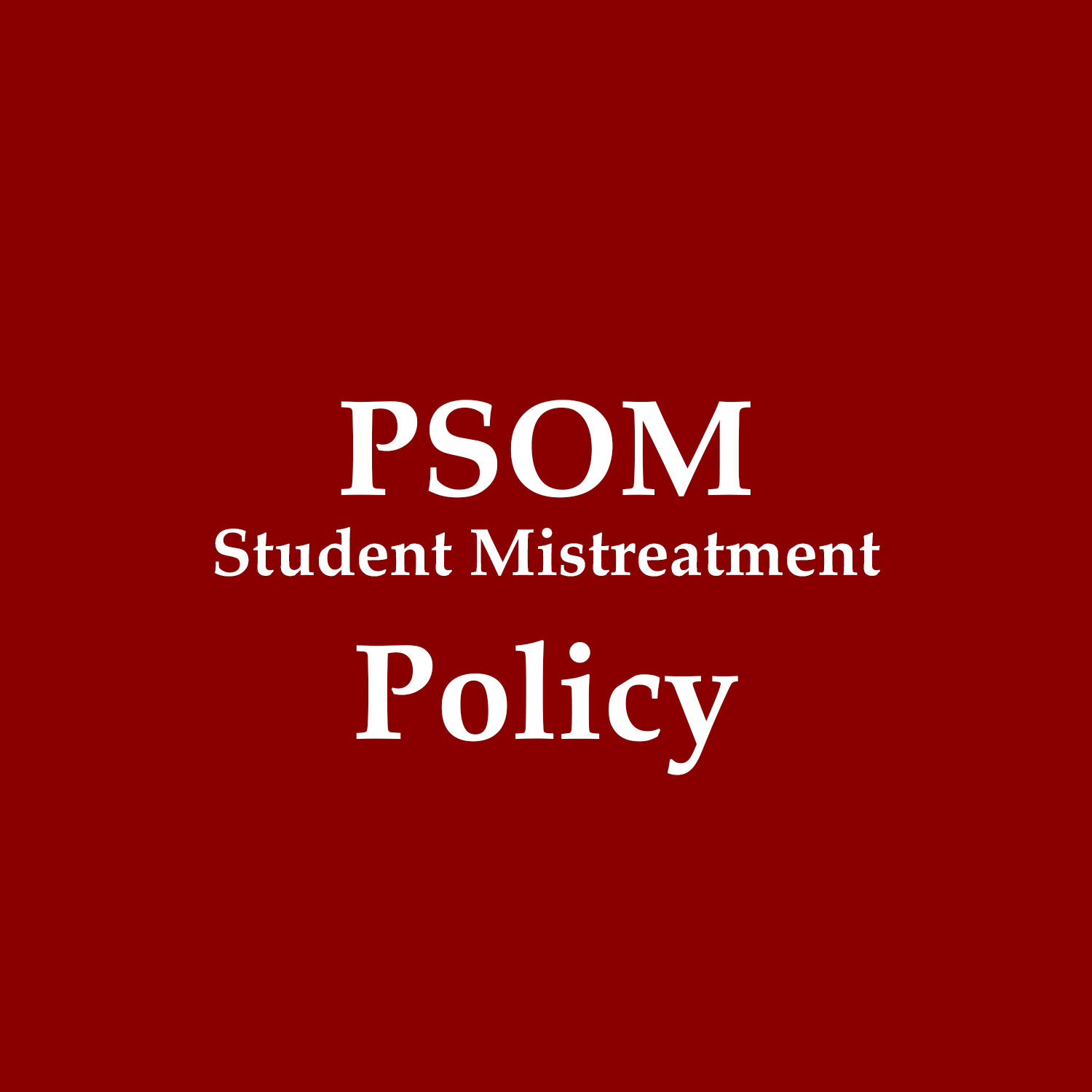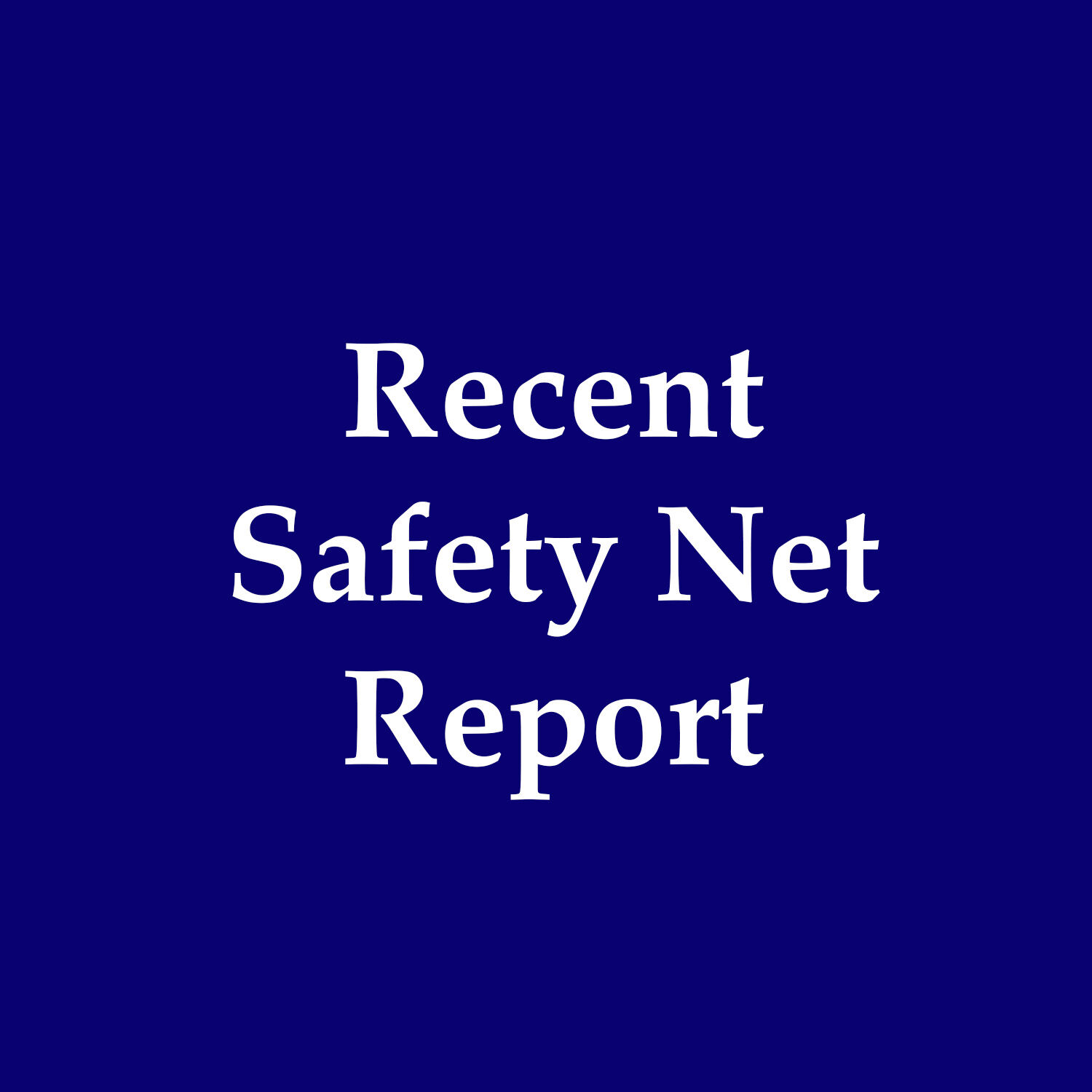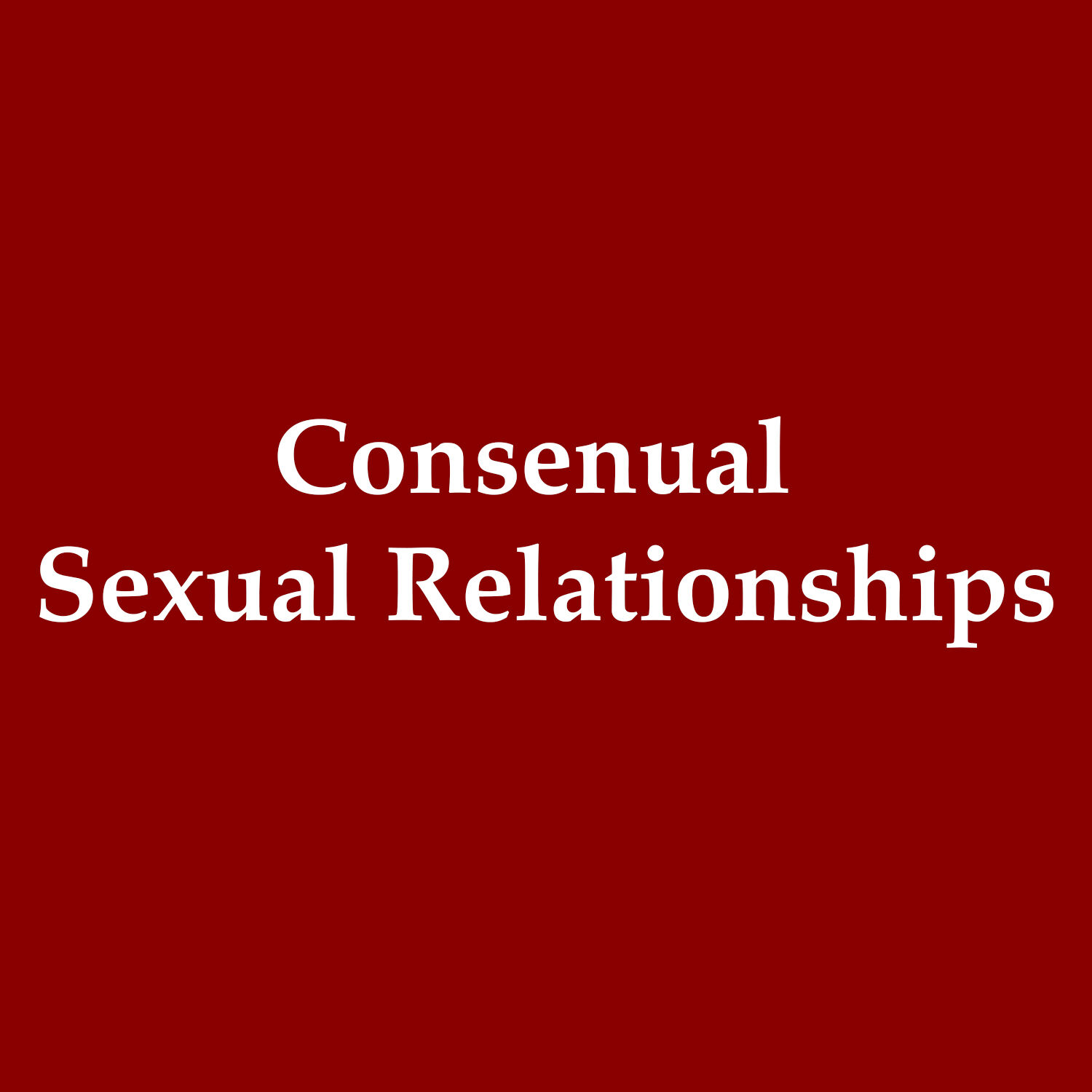Student Mistreatment Portal
This portal collates all information to define what is and is not mistreatment, to provide easy access to effective mechanisms that ensure a prompt response to any complaints, and to support educational activities aimed at preventing mistreatment.
PSOM is is committed to the principle that the educational relationship should be one of mutual respect between teacher and learner.
Submit a Safety Net Report
Email the Associate Dean for Student Affairs and Wellness
Reporting Mistreatment
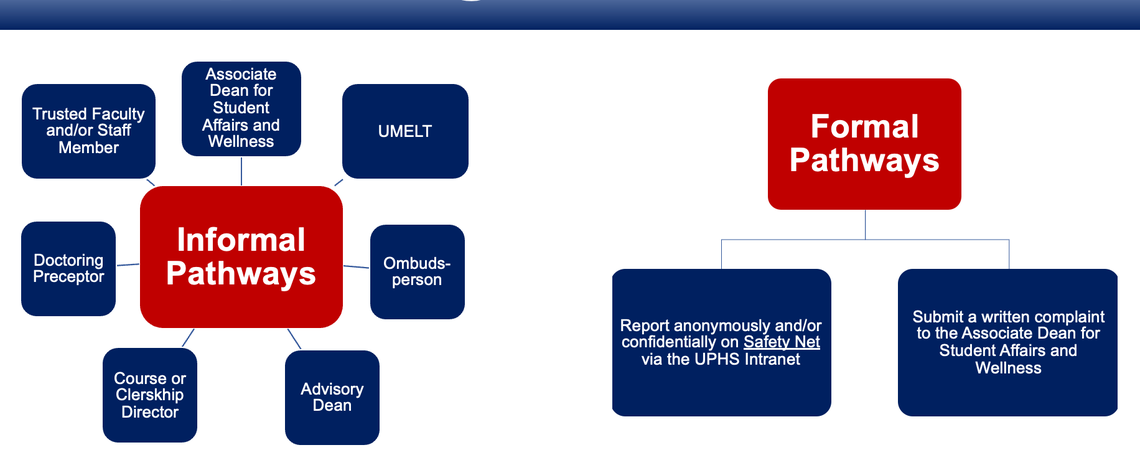
Behavior showing disrespect for the dignity of others which unreasonably interferes with the learning process.
Open for more.
Open for examples of supervisor or superior behavior that might be unpleasant for a trainee but NOT considered mistreatment.
Use the University Bias Reporting Tool
Contact the Title IX Office directly
